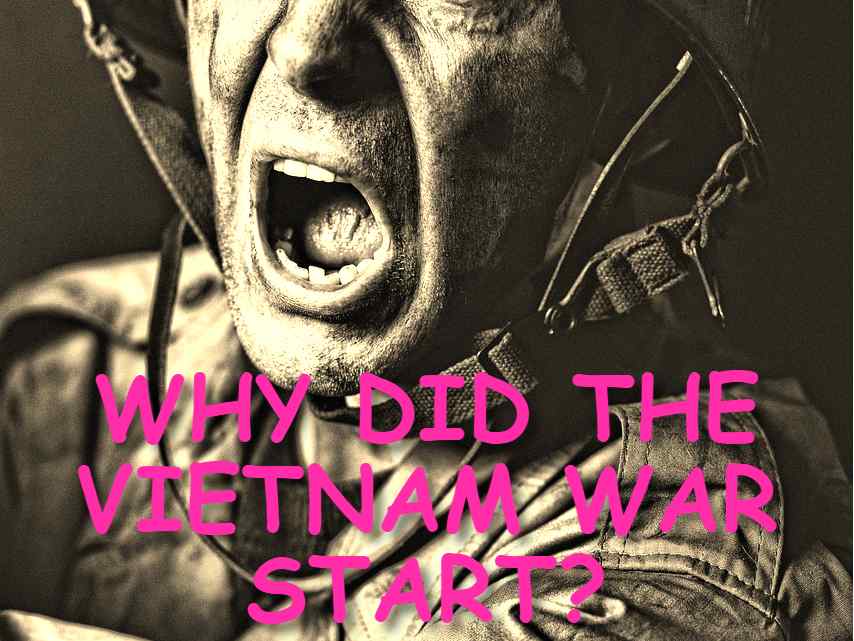Table of Contents
The Vietnam War was a long, costly war that took place from 1954 to 1975. It was a conflict between the Communist government of North Vietnam and the democratic government of South Vietnam, which was supported by the United States and other anti-communist allies. The war resulted in the deaths of millions of Vietnamese and thousands of Americans. But what were the events and ideologies that led to the Vietnam War?
What Was the Gulf of Tonkin Incident?
The Gulf of Tonkin incident was a major event that led to the escalation of the Vietnam War. It occurred in August 1964, when the United States claimed that the North Vietnamese navy had attacked two American destroyers in the Gulf of Tonkin. This incident led to the Gulf of Tonkin Resolution, which allowed President Lyndon B. Johnson to use military force against North Vietnam without the need for a formal declaration of war.
What Actually Happened During the Gulf of Tonkin Incident?
The Gulf of Tonkin incident remains controversial to this day. Some historians claim that the North Vietnamese never attacked the American destroyers, and that the Johnson administration deliberately exaggerated the attack to justify increased military involvement in Vietnam. Others argue that the North Vietnamese did attack the ships, but that the attacks were provoked by American covert operations in North Vietnam.
Did the Gulf of Tonkin Incident Really Trigger the Vietnam War?
While the Gulf of Tonkin incident was not the only cause of the Vietnam War, it was a major catalyst that led to increased American involvement in the conflict. The resolution passed in the aftermath of the incident gave the President broad powers to escalate military operations in Vietnam, which led to the deployment of hundreds of thousands of American combat troops to the region.
What Was the Gulf of Tonkin Resolution?
The Gulf of Tonkin Resolution was a joint resolution of the United States Congress that was passed in August 1964. It authorized the President to take all necessary measures to repel any armed attack against U.S. forces and to prevent further aggression in Southeast Asia. The resolution effectively gave President Johnson a blank check to escalate American involvement in the Vietnam War.
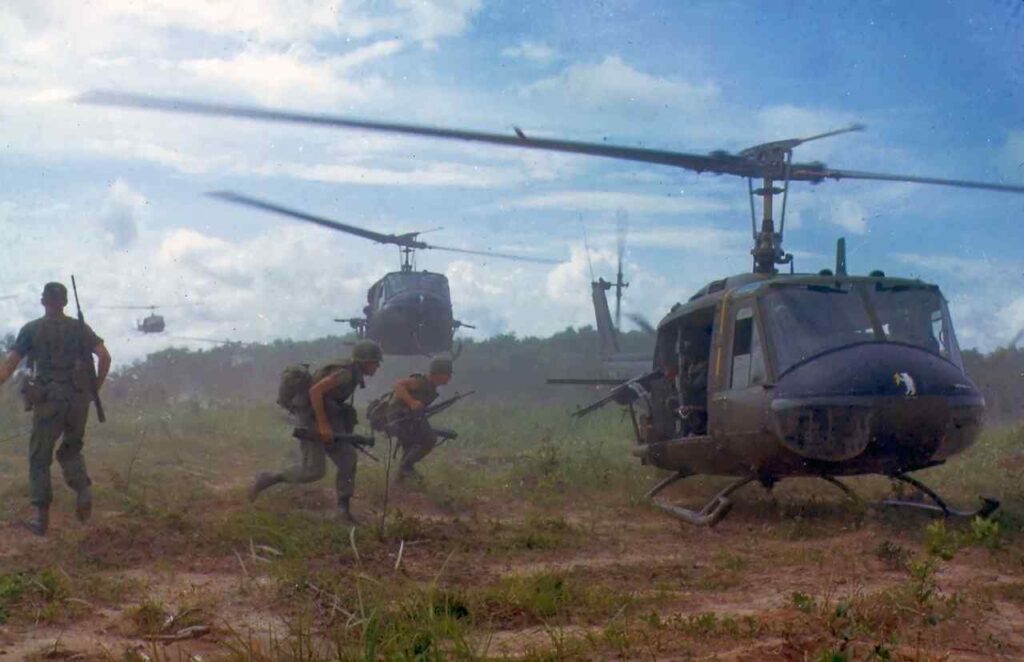
What Was the Domino Theory?
The Domino Theory was a Cold War-era theory that proposed that if one country in a region fell to Communism, other countries in the same region would follow suit. In the context of the Vietnam War, the Domino Theory was used to justify American involvement in Vietnam.
What Did the Domino Theory Propose?
The Domino Theory proposed that the spread of Communism had to be stopped, or else it would engulf the entire world. The theory stated that if one country fell to Communism, neighboring countries would be at risk of being taken over as well. This idea led to the belief that the United States needed to intervene in Southeast Asia to prevent the spread of Communism and protect its interests in the region.
How Did the Domino Theory Justify American Involvement in the Vietnam War?
The Domino Theory was used to justify American involvement in Vietnam by arguing that the fall of South Vietnam to Communism would lead to other countries in Southeast Asia, such as Thailand and the Philippines, falling to Communism as well. This idea of a domino effect was used to justify the deployment of American troops to Vietnam.
What Was the Role of the Soviet Union in the Domino Theory?
The Soviet Union played a major role in the Domino Theory by supporting Communist governments in Southeast Asia. The U.S. viewed the Soviet Union as an aggressor in the region and saw its support for Communist governments as a direct threat to American interests in Southeast Asia.
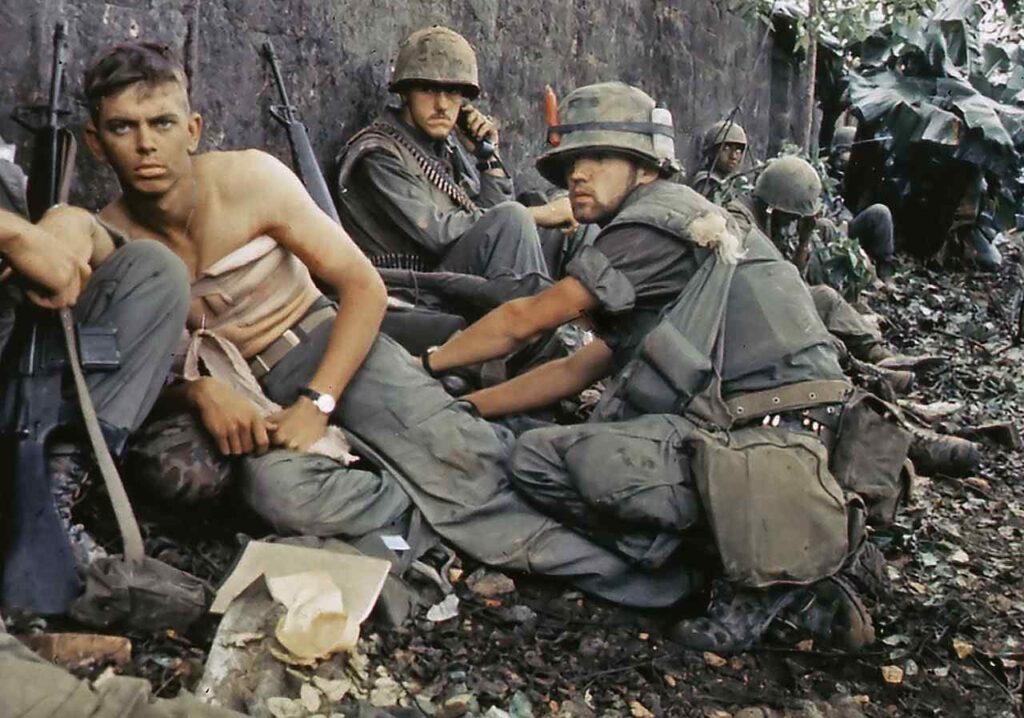
What Was the Vietnam War and Who Were the Viet Cong?
What Was the Vietnam War?
The Vietnam War was a conflict that took place in Vietnam, Laos, and Cambodia from 1954 to 1975. It was a war between the Communist government of North Vietnam, which was supported by the Soviet Union and China, and the democratic government of South Vietnam, which was supported by the United States and other anti-communist allies.
Who Were the Viet Cong?
The Viet Cong were Communist guerrilla fighters who operated in South Vietnam during the Vietnam War. They were supported by the North Vietnamese government and were responsible for a number of attacks on South Vietnamese government forces and American troops.
What Was the Role of North and South Vietnam in the Vietnam War?
North and South Vietnam were the two main belligerents in the Vietnam War. The North Vietnamese government, led by Ho Chi Minh, sought to reunite the country under Communist control. The South Vietnamese government, led by Ngo Dinh Diem, sought to maintain control over the southern part of the country and prevent it from falling to Communism.
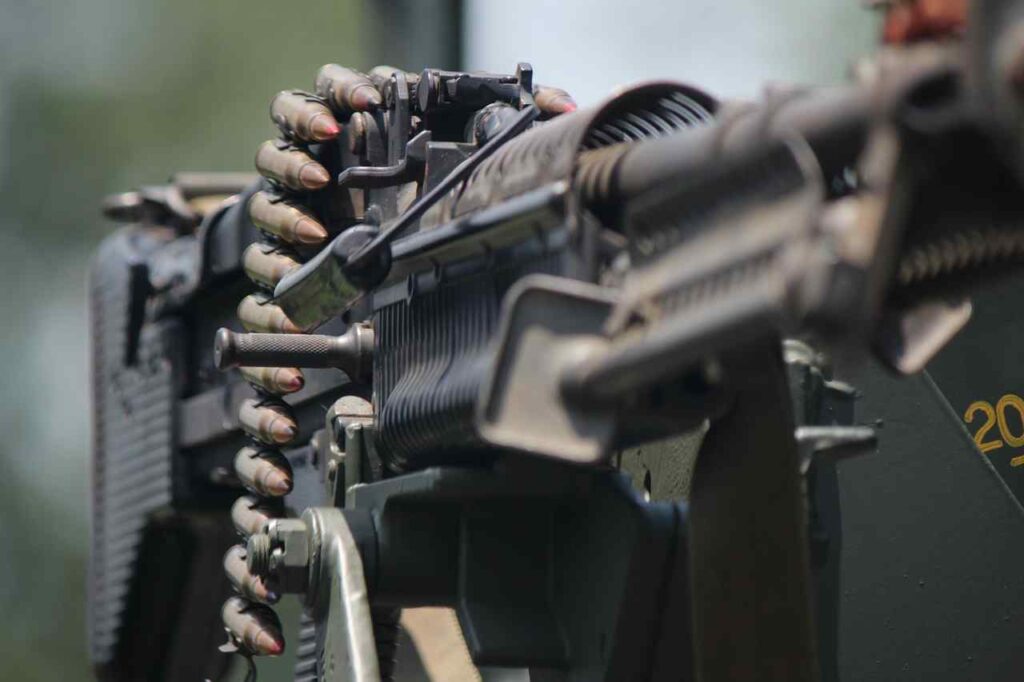
How Did the Cold War Affect the Vietnam War?
What Was the Role of the Cold War in the Vietnam War?
The Cold War played a major role in the Vietnam War. The United States viewed the spread of Communism as a direct threat to its national security, and saw the Vietnam War as a way to contain the spread of Communism in Southeast Asia.
How Did the Cold War Ideology Influence the Vietnam War?
The Cold War ideology of containing Communism influenced American policy towards Vietnam. The United States believed that it needed to intervene in Vietnam to prevent the spread of Communism, and this belief led to the deployment of American combat troops to the region.
What Was the Relationship Between the United States and the Soviet Union During the Vietnam War?
The United States and the Soviet Union were bitter Cold War rivals during the Vietnam War. The Soviet Union supported North Vietnam and provided it with military aid, while the United States supported South Vietnam and sent hundreds of thousands of American combat troops to the region.
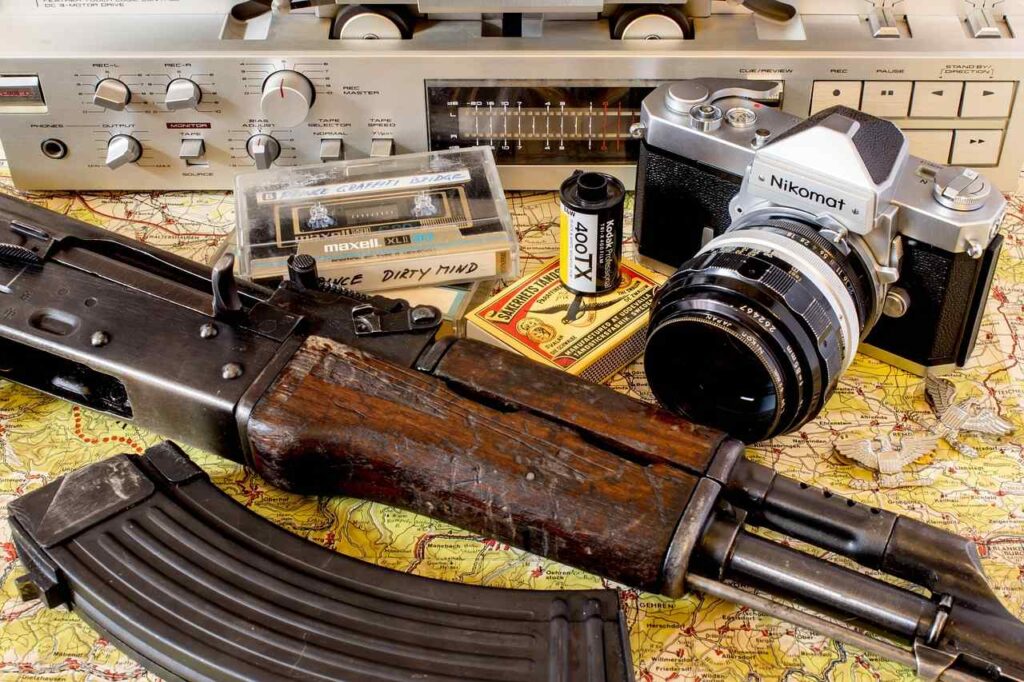
What Was the Indochina War and How Did It Lead to the Vietnam War?
What Was the Indochina War?
The Indochina War was a conflict that took place in Southeast Asia between 1946 and 1954. It was fought between the French colonial government, which sought to maintain control over Indochina (Vietnam, Laos, and Cambodia), and the Viet Minh, a Communist revolutionary movement led by Ho Chi Minh.
How Did the Indochina War Affect the Vietnam War?
The Indochina War paved the way for the Vietnam War. It left a power vacuum in Indochina, which was soon filled by the Communist government of North Vietnam. The Vietnam War was the continuation of the struggle for control over Vietnam that began during the Indochina War.
What Was the Role of France in the Indochina War?
France played a major role in the Indochina War, as it sought to maintain control over its colonial possessions in Vietnam, Laos, and Cambodia. However, the French were defeated by the Viet Minh at the Battle of Dien Bien Phu in 1954, which led to the signing of the Geneva Accords and the partitioning of Vietnam into a Communist North and a democratic South.
In conclusion, the Vietnam War was a complex conflict that was influenced by a number of historical events and ideological beliefs. The Gulf of Tonkin incident, the Domino Theory, the Cold War, and the Indochina War were all factors that contributed to the start and escalation of the Vietnam War.
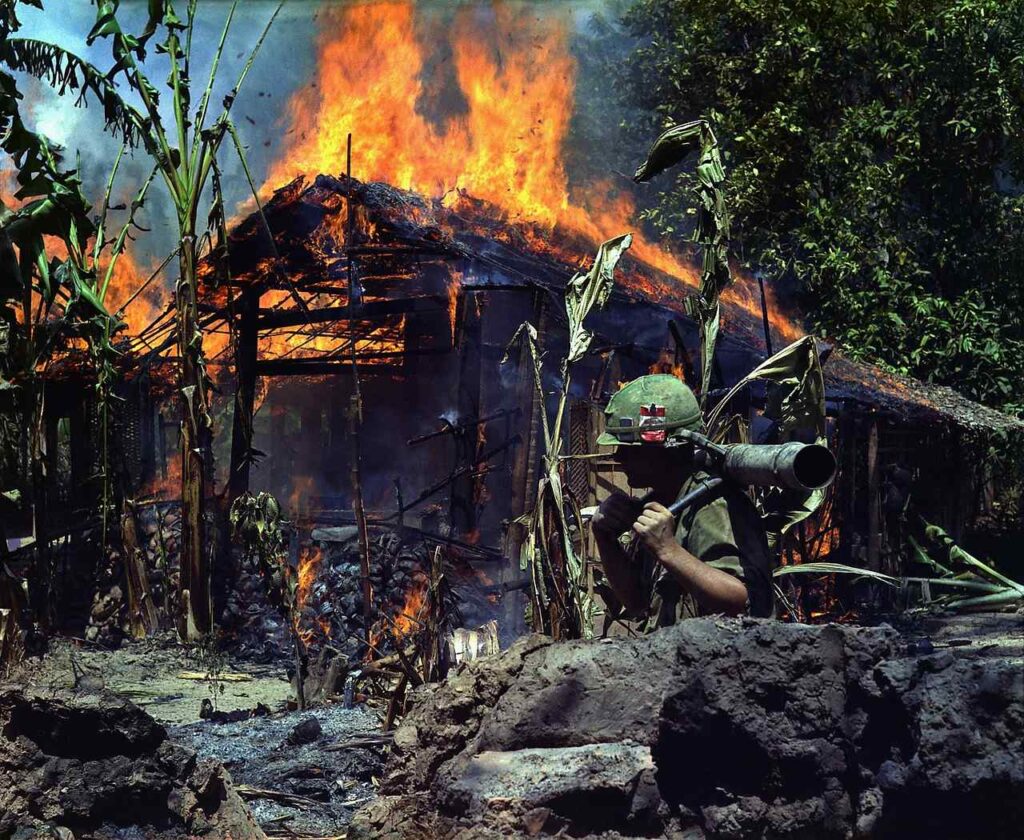
Frequently Asked Questions About The Vietnam War.
Q: What Was The First Indochina War?
A: The First Indochina War was a conflict in Southeast Asia fought between 1946 and 1954 by the French Union and the communist Viet Minh forces led by Ho Chi Minh.
Q: Who Was Involved In The Vietnam War?
A: The main parties involved in the Vietnam War were North Vietnam and its communist allies, and South Vietnam and its principal ally, the United States. Other countries such as Australia, New Zealand, and South Korea also provided troops to fight alongside the Americans.
Q: What Was The Role Of The National Liberation Front during the Vietnam War?
A: The National Liberation Front was a political organization that fought for the unification of North and South Vietnam. They used guerrilla warfare tactics and were supported by North Vietnam.
Q: How Many Troops Were Stationed In Vietnam?
A: At the height of the war effort, there were over 500,000 American troops stationed in Vietnam.
Q: When Did South Vietnam Fall?
A: South Vietnam fell on April 30, 1975, when North Vietnamese troops captured Saigon, the capital of South Vietnam.
Q: What Is The Vietnam Veterans Memorial?
A: The Vietnam Veterans Memorial is a memorial in Washington, D.C. that honors the American military personnel who served and died in the Vietnam War.
Q: What Was The Role Of South Vietnamese Forces During The Vietnam War?
A: South Vietnamese forces were the military forces of the government of South Vietnam. They were trained and supported by the United States and other anti-communist allies, and fought against the communist forces of North Vietnam and the Viet Cong.
Q: Why Did The United States Withdraw Troops From Vietnam?
A: The United States withdrew troops from Vietnam because the American public had grown weary of the war and the heavy casualties. Additionally, the cost of the war effort was becoming a burden on the U.S. economy.
Q: Why did the Vietnam War start?
A: The Vietnam War was a long and controversial conflict that began in the 1950s and did not end until the 1970s. The war started due to a number of complex factors, including the spread of communism and increasing tensions between North and South Vietnam. Essentially, the war was fought to prevent North Vietnam, a communist state, from taking control of South Vietnam, which was supported by the United States and other anti-communist nations.
Q: What was the war in Vietnam?
A: The war in Vietnam, also known as the American War, was a major military engagement that took place in Southeast Asia from the mid-1950s to the early 1970s. The conflict pitted North Vietnam, which was supported by communist nations such as China and the Soviet Union, against South Vietnam, which was supported by the United States and other anti-communist countries.
Q: Who fought in the Vietnam War?
A: The Vietnam War was primarily fought between North Vietnam and South Vietnam, with support from various other countries and organizations. The United States played a major role in the war, sending troops to fight alongside South Vietnamese forces and providing extensive financial and military aid to the country. Other countries that provided support to South Vietnam included Australia, South Korea, and Thailand.
Q: What was the Second Indochina War?
A: The Second Indochina War is another name for the Vietnam War. The conflict began as a struggle between French colonial forces and Vietnamese nationalists in the 1940s and 1950s, but it escalated after the Geneva Accords of 1954 divided Vietnam into North and South. The war officially ended in 1975 with the unification of North and South Vietnam under the Socialist Republic of Vietnam.
Q: How did the war in Vietnam end?
A: The war in Vietnam officially ended on April 30, 1975, when North Vietnamese troops captured Saigon, the capital of South Vietnam. This marked the end of the conflict and the unification of North and South Vietnam under the Socialist Republic of Vietnam.
Q: Why was the war in Vietnam controversial?
A: The war in Vietnam was one of the longest and most controversial conflicts in the history of the United States. It was controversial for a number of reasons, including the high number of American casualties, the use of chemical weapons such as Agent Orange, and the fact that the war was fought in a distant and unfamiliar land. Additionally, many Americans were opposed to the war and saw it as unnecessary and unjustified.
Q: How many American troops served in Vietnam?
A: An estimated 2.7 million American personnel served in Vietnam between 1955 and 1975. Of these, more than 58,000 died in the war.
Q: What was the state of Vietnam?
A: The State of Vietnam was a short-lived country that existed from 1949 to 1955. It was created after the French withdrew from Vietnam and was led by Emperor Bao Dai. The State of Vietnam was succeeded by the Democratic Republic of Vietnam, which later became North Vietnam.
Q: What was the opposition to the war in Vietnam?
A: The opposition to the war in Vietnam was widespread and varied. Many Americans felt that the war was unnecessary and immoral, while others opposed it on political or strategic grounds. The anti-war movement was fueled by a number of factors, including the high number of casualties and the use of tactics such as napalm and Agent Orange.
Q: What was South Vietnam’s government and military?
A: South Vietnam was a democratic state that was supported by the United States and other anti-communist nations during the Vietnam War. The government of South Vietnam was led by President Ngo Dinh Diem, while the military was primarily composed of the South Vietnamese Army, which was trained and equipped by the United States. Despite American support, South Vietnam was eventually defeated by North Vietnam and the conflict ended with the unification of the two countries.
Related Articles
Britannica Why Did The Vietnam War Start?
https://www.britannica.com/question/Why-did-the-Vietnam-War-start
History Why Did The Vietnam War Start?
https://www.history.com/topics/vietnam-war/vietnam-war-history
Wikipedia Why Did The Vietnam War Start?
https://en.wikipedia.org/wiki/Vietnam_War
Khan Academy Why Did The Vietnam War Start?
https://www.khanacademy.org/humanities/us-history/postwarera/1960s-america/a/the-vietnam-war
NY Times Why Did The Vietnam War Start And What Was The Vietnam War About?
https://www.nytimes.com/2018/03/26/opinion/what-was-the-vietnam-war-about.html
The Week Why Did The Vietnam War Start?
https://www.theweek.co.uk/93268/how-did-the-vietnam-war-start
Thought Co Why Did The Vietnam War Start?
https://www.thoughtco.com/why-did-us-enter-vietnam-war-195158
Ducksters Why Did The Vietnam War Start?
https://www.ducksters.com/history/cold_war/vietnam_war.php
FPRI Why Did The Vietnam War Start?
https://www.fpri.org/article/2017/04/united-states-went-war-vietnam/
Study Smarter History Why Did The Vietnam War Start?
https://www.studysmarter.co.uk/explanations/history/cold-war/the-vietnam-war/
World History Why Did The Vietnam War Start?
https://www.worldhistoryblog.com/causes-of-the-vietnam-war.html
Pritzker Military Why Did The Vietnam War Start?
Nerd Momma Why Did WW1 Start?
https://nerdmomma.com/why-did-ww1-start-why-first-world-war-began/#more-3140
Nerd Momma Why Is Biodiversity Important?
https://nerdmomma.com/why-is-biodiversity-important-report-no2/#more-2730
